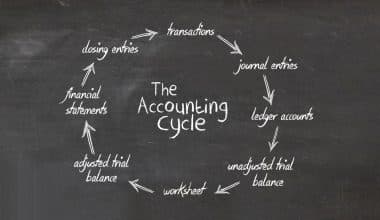The taxable income formula is used to calculate the total earnings taxable under the income tax. For individuals, the formula is simple, and the calculation is by subtracting the income tax exemptions and deductions from the total money generated. While for businesses, the calculation is made by deducting all expenditures and deductions from the overall sales and other income earned. With this, I will show you the step-by-step guide for calculating the taxable income formula for individuals and how to find it for an individual.
What is the Taxable Income Formula?
In layman’s terms, it refers to the amount of revenue by an individual or entity that may result in a tax liability. The method for taxable income for an individual is quite straightforward on the surface. And the calculation is by deducting all tax-exempt expenses and all eligible deductions from gross total income.
It is represented as follows for an individual:
The formula for Taxable Income = Gross Total Income – Total Exemptions – Total Deductions
A corporation’s taxable income, on the other hand, is calculated by deducting the cost of items sold. Operational costs and loan interest are paid on the firm’s gross sales. To arrive at the final income and an adjustment for a tax deduction or credit is performed.
For corporations, it is written as,”The formula for Taxable Income = Gross Sales – Cost of Goods Sold – Operating Expense – Interest Expense – Tax Deduction/ Credit”
How to calculate an organization’s taxable income:
The following five steps can be used to calculate an organization’s taxable income
- First, the sales department must certify gross sales.
- The accounting department then determines the cost of products sold.
- The operational expense is then determined using data from the accounts department.
- The interest paid is then computed based on the interest rate charged and the company’s outstanding debt. Interest expense = interest rate * debt
- Next, determine all of the company’s tax deductions and credits.
- Finally, the taxable income calculation equation is by deducting the cost of items sold. As well as operating expenses, and interest paid on debts from the company’s gross sales.
Step-by-Step Guide for Calculating Taxable Income Formula
Below is the step-by-step guide for calculating the taxable income formula. Here is how to fill out Form 1040 to calculate taxable income.
Step 1: Find Out What Your Filing Status Is.
To begin, calculate your filing status.
As a married couple, filing jointly is usually your best choice. If you file your taxes jointly with your husband, you must put all of your earnings together to get the total. You can join your deductions and pay your taxes as a couple.
Step 2: Consider Your Different Income Sources
You must record all of your income to the IRS. This covers any additional revenue. For example, side income, interest income, or other sources of income in addition to pay and tips. This revenue is directly reported on your Form 1040 or Schedule 1.
Total gross income is calculated by summing all types of income generated during the calendar year. There are separate lines on the front of Form 1040 and Schedule 1 for different forms of income, but by the end, you’ll have totaled it all up.
Step 3: Calculate Your Deductions and Taxable Income Formula
The next big question is, “How do I calculate my taxable income formula?” This phase will assist you in determining your taxable income after deductions.
After you have reported all of your income on Form 1040 and Schedule 1, you will have the opportunity to amend your income on Schedule 1.
You may be eligible to decrease your income by using Schedule 1 to deduct contributions to a conventional IRA, student loan interest, self-employment deductions, and other costs.
Help with calculating taxable income is available here.
If you’d prefer not to handle it alone, you always have those available to assist you. They’ll help you determine your taxable income as part of completing your return. Whether you schedule a meeting with one of our skilled tax professionals or use one of our online tax filing tools. Furthermore, you can rely on H&R Block to help you receive the most money back.
Comprehending Taxable Income
Earned and unearned income are both included in taxable income. Taxable unearned income includes canceled debts, government advantages (such as jobless benefits and incapacity payments), strike compensation, and lottery winnings. Earnings from valued assets sold during the year, as well as dividends and interest income, are all taxable income.
Individual tax filers have the option of claiming the standard deduction or a list of itemized deductions when it comes to deductions, according to the IRS.
Itemized deductions comprise mortgage interest, medical costs that surpass a certain threshold (7.5 percent of your AGI), and a variety of other expenditures.
Businesses do not record their revenues as taxable income when they pay their taxes. Instead, they compute their business income by deducting their business expenditures from their revenue. Then they reduce their deductions to determine their taxable income.
Nontaxable vs. Taxable Income
The IRS deems almost all types of income to be taxable, but a few revenue streams are not.
For instance, if you are a part of a religious order that has sworn an oath of austerity, work for an organization operated by that order, and turn over your profits to the order, your income is not taxable.
Likewise, if you get a worker award winner, the value of the award is not taxed if particular criteria are met. If someone passes and you obtain a life insurance payout, that is also nontaxable income.
Varied taxing authorities have different definitions of taxable and nontaxable income. While the IRS regards lottery winnings to be taxable income in the United States, the Canadian Revenue Agency views most lottery prizes and other unexpected one-time windfalls to be nontaxable.
What Exactly Is Unearned Income?
Interest, dividends, and rents, as well as capital gains, are examples of unearned income subject to taxes by federal or state authorities. Other sources of taxable income include forgiven loans, government benefits, and profits from casinos or lotteries.
What Exactly Is Nontaxable Income?
Donating profits to a religious or charitable organization is an example of nontaxable income. Another example is an employee accomplishment award, which can be given if specific conditions are met. If you lose a loved one and receive a life insurance benefit, that is also nontaxable income.
How Is the Taxable Income Calculated?
Your taxable income is calculated by deducting all allowable deductions from your gross income. Before claiming any available tax credits, calculate your taxable income and compare it to your tax bracket.
What Is Total Taxable Income?
This includes any money you have from sources other than your salary and tips, such as a side job, interest income, and other sources. On Schedule 1 or Form 1040, all of this income is listed in detail. You can figure out your total gross income by adding up all the different ways you made money over the course of the fiscal year.
Is Taxable Income Net or Gross?
All of your income that isn’t expressly excluded from taxation under the Internal Revenue Code is included in your gross income (IRC). The part of your gross income that is actually taxed is known as your taxable income. To determine your amount of taxable income, deductions are reduced from your gross income.
Is Taxable Income the Same as Income Before Tax?
Pre-tax income is the entire amount earned before taxes are deducted, whereas taxable income is the amount generated after taxes have been removed.
What Are the Three Types of Taxable Income?
Types of Taxable Income
- Employee benefits and compensation. These are the most prevalent forms of taxable income and include wages, salaries, and fringe benefits.
- Investing and business earnings. …
- Miscellaneous taxable income.
Conclusion
The taxable income formula is used to calculate the total earnings taxable under the income tax. For individuals, the formula is simple. And the calculation is by subtracting the income tax exemptions and deductions from the total money generated. While for businesses, the calculation is made by deducting all expenditures and deductions from the overall sales and other income earned. With this, I will show you how to calculate the taxable income formula for individuals and how to find it for an individual.






